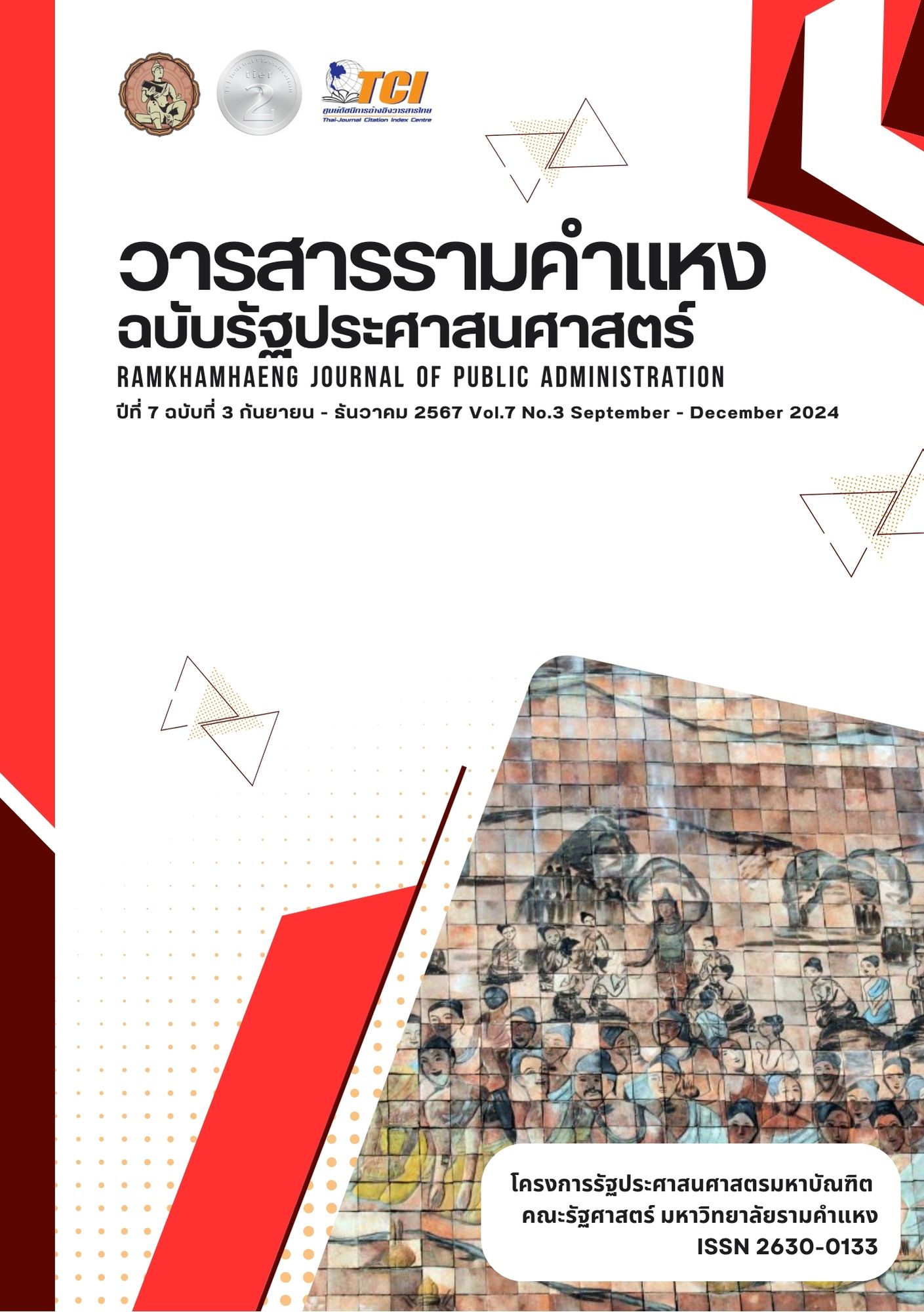The role of online social media in influencing opinions on public policies of Thai youth
คำสำคัญ:
Social media, Public policy, Thai youthบทคัดย่อ
The internet has made online media an integral part of human daily life and has created online social platforms as spaces for exchanging information and expressing identities. Therefore, online social media is cross-linked to public opinion by serving as a gathering place for diverse thoughts, knowledge, experiences, and ideas of the public. Thai youth are part of this trend, utilizing online social media to exchange opinions, information, knowledge, and news about politics and society extensively due to global political instability and changes in societal norms. This demonstrates the significant interest Thai youth have in Thai politics which we can see that they access online social media to enhance their knowledge and establish their identities through expressing political opinions and various public policies. Consequently, it can be concluded that online social media plays a crucial role in shaping opinions regarding public policies concerning Thai youth. Therefore, the government and relevant stakeholders should pay attention to these opinions and consider them in formulating appropriate public policies or adapting existing ones to meet the needs of the youth. Additionally, the government can utilize online social media as a communication channel to reach all citizens, ensuring transparency and providing rapid services
เอกสารอ้างอิง
Bennett, W. L. (2007). Civic life online: Learning how digital media can engage youth (p. 216). The MIT Press.
Biocca, F. (2000). New media technology and youth: Trends in the evolution of new media. Journal of Adolescent Health, 27(2), 22-29.
Ceron, A. (2015). Internet, news, and political trust: The difference between social media and online media outlets. Journal of computer-mediated communication, 20(5), 487-503.
Dylko, I., & McCluskey, M. (2012). Media effects in an era of rapid technological transformation: A case of user-generated content and political participation. Communication Theory, 22(3), 250-278.
Ekström, M., & Östman, J. (2015). Information, interaction, and creative production: The effects of three forms of internet use on youth democratic engagement. Communication Research, 42(6), 796-818.
Fisher, D. R. (2012). Youth political participation: Bridging activism and electoral politics. Annual review of Sociology, 38, 119-137.
Jenkins, H. (2016). Youth voice, media, and political engagement. By any media necessary: The new youth activism, 3(1).
Jitsaeng, K., & Tuamsuk, K. (2022). Digital factors influencing the use of social media in political communication among Thai youths. International Journal of Media and Information Literacy, 7(2), 450-462.
Keating, A., & Melis, G. (2017). Social media and youth political engagement: Preaching to the converted or providing a new voice for youth? The British Journal of Politics and International Relations, 19(4), 877-894.
Kulachai, W., Lerdtomornsakul, U., & Homyamyen, P. (2023). Factors influencing voting decision: a comprehensive literature review. Social Sciences, 12(9), 469.
Loader, B. D. (Ed.). (2007). Young citizens in the digital age: Political engagement, young people and new media. Routledge.
Masiya, T., & Lubinga, S. N. (2023). The influence of social media on transparency and accountability of the South African public sector. Redfame Publishing, 11(7), 42-56.
Mossberger, K., Tolbert, C. J., & McNeal, R. S. (2007). Digital citizenship: The Internet, society, and participation. Mlt Press.
Riaz, S. (2010). Effects of new media technologies on political communication. Journal of Political Studies, 17(2), 161.
Rossi, F. M. (2009). Youth political participation: Is this the end of generational cleavage? International sociology, 24(4), 467-497.
Sinpeng, A. (2017). Participatory inequality in online and offline political engagement in Thailand. Pacific Affairs, 90(2), 253-274.
Thanapornsangsuth, S., & Anamwathana, P. (2022). Youth participation during Thailand’s 2020-2021 political turmoil. Asia Pacific Journal of Education, 1-15.
Tsagkias, M., De Rijke, M., & Weerkamp, W. (2011, February). Linking online news and social media. In Proceedings of the fourth ACM international conference on Web search and data mining (pp. 565-574).
Vromen, A. (2008). Building virtual spaces: Young people, participation and the Internet. Australian Political Studies Association, 43(1), 79-97.
ดาวน์โหลด
เผยแพร่แล้ว
รูปแบบการอ้างอิง
ฉบับ
ประเภทบทความ
หมวดหมู่
สัญญาอนุญาต
ลิขสิทธิ์ (c) 2024 มนทกานติ์ รอดคล้าย , มาธินี คงสถิตย์

อนุญาตภายใต้เงื่อนไข Creative Commons Attribution-NonCommercial-NoDerivatives 4.0 International License.



